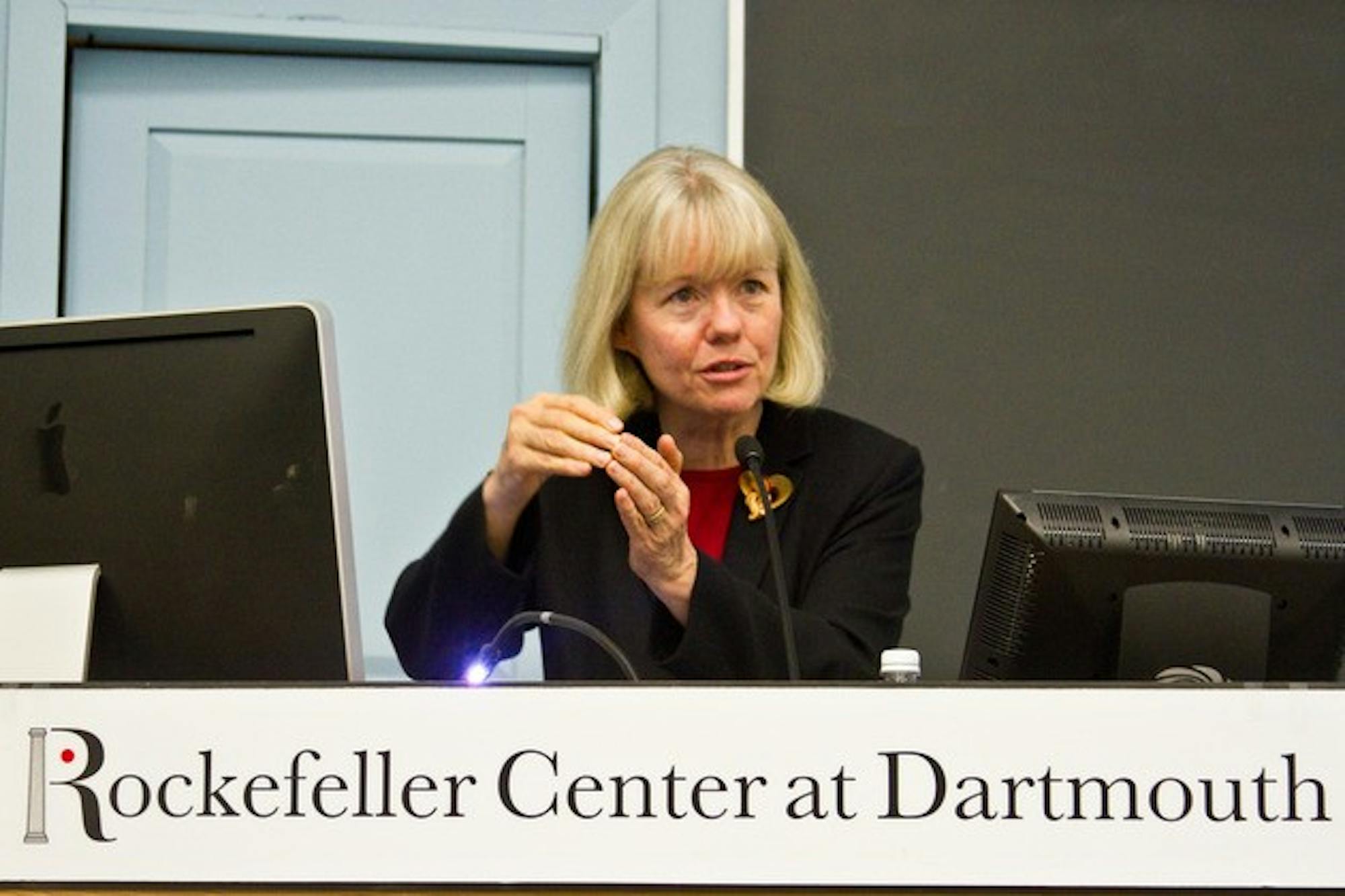"Martin Luther King Jr. said that law might not change the heart but it can restrain the heartless," she said to an audience of approximately 50 community members. "There is a need to restrain the heartless and change the heart."
Farrior, who served as legal director and general counsel for Amnesty International during the 1990s at its global center in London, said her experiences working abroad have shaped her understanding of how the law contributes to human rights advocacy, as well as its limitations in bringing about social change.
Citing her experience working with human rights activists in countries like India, Yemen and Malawi, Farrior emphasized the importance of international "legal instruments" like the U.N. and Amnesty International.
"It is very important for human rights activists on the ground to have a voice, and sometimes the only voice they have is an international forum such as the U.N.," she said. "The U.N.'s involvement adds an additional layer of pressure to governments to change their actions and adhere to international standards."
Following a visit to Malawi in 1996, Amnesty International representatives successfully collaborated with the government to suspend existing death penalty cases and pass a moratorium on the death penalty, Farrior said.
Farrior also discussed the difficulties faced by individual states within the United States as they seek to protect all socioeconomic and racial groups' basic human rights. She cited a 1999 case of toxic pollution in Mossville, La., in which local residents protested against pollution from 14 industrial plants that residents claimed violated "the right to life."
This situation in which hazardous waste facilities were placed near a population composed mostly of black citizens illustrated the complex connection between racial tensions and environmental human rights, she said.
"There is a state responsibility to prevent private actors from harming individuals," Farrior said. "States must prevent actions, investigate, prosecute, analyze evidence, punish and provide compensation."
Farrior concluded with a discussion of the U.N.'s efforts to protect lesbian, gay, bisexual and transgender rights. Farrior cited the 2010 murder of David Kato, a Ugandan LGBT human rights activist, who she said was murdered due to his beliefs and political activism. His death demonstrates how religion, culture and tradition directly relate to international human rights law and illustrates the need for an "evolving understanding, education and dialogue," Farrior said.
Dartmouth students should speak out whenever they witness injustice and should look for ways to work toward a more just society, she said. "Every single person who is involved in some form of human rights activity is having some impact," she said. "It is often easy to feel overwhelmed by how great the task is because the problems are often large, but nothing will change unless you act."
Students interviewed by The Dartmouth said that Farrior's discussion of international law increased their own interest in the subject.
"Farrior's clarity when recounting her individual experience and her use of case studies made me realize that it is not simply the role of law that determines the outcome of issues of human rights abuses, but the role of the people who are advocating the law," Han Suh '15 said. Farrior's lecture, "The Role of Law in International Human Rights Advocacy," was sponsored by the Rockefeller Center for Public Policy, the Dartmouth Lawyers Association and the Dartmouth Legal Studies Faculty Group. Her visit was sponsored by the Roger S. Aaron '64 Lecture Fund, which brings speakers in the field of law, ethics and public policy to campus.




